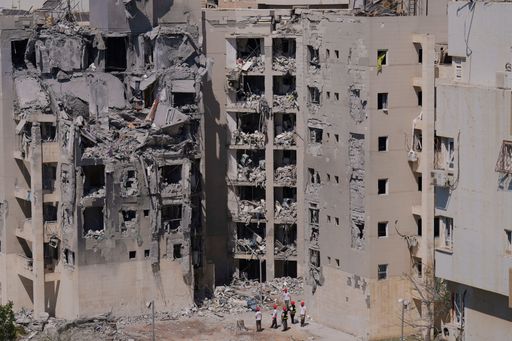US senators are divided over the effectiveness of recent American air strikes on Iran's nuclear infrastructure, with Democrats casting doubt on claims of success and Republicans defending the mission's outcome.
The reactions followed a classified briefing on the operation, which was ordered by US President Donald Trump.
Senate Democratic Leader Chuck Schumer criticised what he described as a lack of coherent planning, saying he received no satisfactory answer when he asked about Trump's assertion that Iran's nuclear programme had been "obliterated."
"There was no coherent strategy, no end game, no plan," Schumer told reporters, calling for enforcement of the War Powers Act, a measure intended to limit a president's ability to wage military campaigns without congressional approval.
Senator Chris Murphy of Connecticut said the briefing confirmed his view that the air strikes merely delayed Iran’s programme by "a handful of months."
He dismissed Trump's language as inflated, adding: "You cannot bomb knowledge out of existence, no matter how many scientists you kill."
Republican Senator Tom Cotton of Arkansas said the strikes inflicted "catastrophic damage" by targeting key components such as centrifuges, conversion facilities and nuclear scientists.
"We're confident because these are all single points of failure in Iran's nuclear weapons effort," Cotton said.
Senator Lindsey Graham of South Carolina agreed the strikes had been effective but warned the problem had not disappeared.
"I don't want people to think the problem is over, because it’s not," he said.
"They're going to keep trying this."

Lingering debate over strike's effectiveness
The classified briefing did little to settle the debate over whether the strikes truly damaged Iran’s nuclear capabilities or merely caused a temporary setback.
Questions continue to mount over the strategic outcome and timing of the operation.
A European intelligence report released around the same time concluded that while the strikes inflicted damage, they stopped short of destroying Iran’s nuclear facilities entirely.
The report stated that most of the impacted infrastructure could eventually be repaired.
Trump has lashed out at US media outlets such as CNN and The New York Times over their reporting, which suggested the strikes failed to end Iran’s nuclear ambitions.
Khamenei says Trump exaggerated events
Meanwhile, in a televised speech — his first appearance since a ceasefire in the war with Israel — Iran's Supreme Leader Ali Khamenei hailed what he described as Iran's "victory" over Israel, vowed never to yield to US pressure and insisted Washington had been dealt a humiliating "slap".
"The American president exaggerated events in unusual ways, and it turned out that he needed this exaggeration," Khamenei said, rejecting US claims Iran's nuclear programme had been set back by decades.
The strikes, he insisted, had done "nothing significant" to Iran's nuclear infrastructure.
But Iran's Foreign Minister Abbas Araghchi called the damage "serious" and said a detailed assessment was under way.

The Israeli military said Iran's nuclear sites had taken a "significant" blow, but cautioned it was "still early" to fully assess the damage.
Israeli PM Benjamin Netanyahu said Israel had "thwarted Iran's nuclear project", warning any attempt by Iran to rebuild it would be met with the same determination and intensity.
Iran has consistently denied seeking a nuclear weapon while defending its "legitimate rights" to the peaceful use of atomic energy.
The Israeli attacks on Iran killed at least 627 civilians, Tehran's Health Ministry said. Iran's strikes on Israel killed 28 people, according to Israeli figures.



















